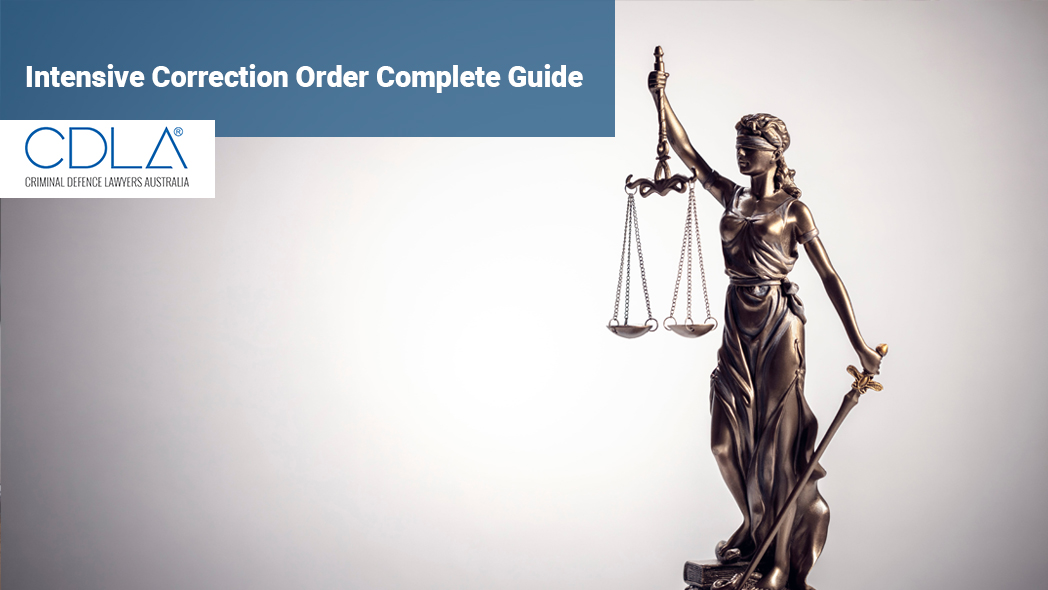What Penalty Can I Get for a Criminal or Traffic Offence?
Here is a list of the type of penalties that NSW Courts can give in criminal and Traffic offences under the Crimes (Sentencing Procedure) Act 1999 (NSW).
Which one that ends up getting picked for your case depends on the seriousness of the offending conduct, the charge, the preparation that goes into your case, and how persuasive your representation is in court.
The Judge or Magistrate in Court will have the following 6 main things in mind when deciding on the appropriate penalty to give you:
- To ensure you’re adequately punished for the offence
- To punish you in a way that it deters others and you from doing it again
- To protect the community
- To recognise the harm done to the victim and community
- To make you accountable for your actions
- To promote your rehabilitation
TYPES OF PENALTIES FOR NSW OFFENCES
A Magistrate or Judge can impose any one of the below type of penalties for a criminal or traffic offence in NSW.
FAQ
An assessment report is also known as a pre-sentence report (PSR) drafted by a community corrections officer.
An assessment report helps and guides the Magistrate or Judge to assess whether it would be more appropriate to impose a sentence other than full time prison, and what conditions are appropriate to impose on an offender.
The assessment report does this by assessing the offenders risks of re-offending, identifying the main reasons for why the offence was committed (i.e. mental health, drug or alcohol addiction, gambling addiction).
The report can then outline ways those issues can be addressed by suggesting ways to better rehabilitate the offender other than sending him/her to prison. This can include treatment and rehabilitation programs as proposed conditions.
The aim of the report is to tell the Judge whether giving the offender a sentence other than full time prison will more likely address the risk of re-offending. If the report says that the offender is not suitable for an ICO, then the Judge cannot give an ICO sentence.
The Magistrate or Judge will likely give you an ICO or a community service work condition in a Community Corrections Order as a sentence instead of full time prison if the assessment report says that you’re suitable.
It’s important to be well guided and informed of how this all works beforehand.
What is the procedure to get an assessment report?
You can ask the Judge to order an assessment report. If granted, your case will get adjourned for around 6-8 weeks so that you can arrange to contact a community corrections officer closest to where you live for an assessment report to be produced.
When you contact your closest community corrections office, an appointment will be scheduled for you to attend an interview with a community corrections officer.
The community corrections officer will then produce an assessment report to give to the court expressing his/her views on your suitability to serve an ICO as a penalty or a community corrections order with a community service work assessment as a condition. It will also outline any appropriate conditions for the Judge to consider imposing in a sentence.
Remember, that this report will advise the court about your risks, needs, whether your suitable to work, whether your getting treatment or what treatment may be required. This information is usually based on what you say in your interview with the community corrections officer.
The community corrections officer will usually also contact other people to verify things you say. i.e. your psychologist will be contacted to verify you are in fact getting treatment from him/her.
The assessment report is not binding on the Court. It’s something the court can have regard to. However, if the ICO report says that you’re not suitable for an ICO for a valid reason, then the Judge cannot impose an ICO as a sentence.
If the Judge cannot impose an ICO as a sentence, you will be at a very high risk of getting a full time prison sentence. For this reason, it’s critical to get appropriate guidance and advice from an experienced criminal lawyer beforehand.
Practically and generally, the Judge will likely give you an ICO if the assessment report says that you’re suitable for it.
During your interview with a community corrections officer, you’ll be asked a raft of questions to determine factors that contributed to why you committed the offence(s), remorse and insight for what you did, and any prospects of being able to address the issues that formed part of why you did what you did- so that the report can provide some insight to a Judge to determine an appropriate punishment.
The assessment report will reflect your answers to the questions asked to explore the following issues:
- Factors that contributed to your offending, and whether those factors can be addressed with available treatment within an intensive corrections order.
- The police facts sheet and any previous criminal record.
- Any risks about you regarding the management of you in the community. This includes any non-compliance issues from supervision you were subject to in the past.
- Likelihood of you committing a domestic violence offence.
- Whether there is suitable residential accommodation for you during the ICO.
- Whether your hours or days of work, or study would prevent you from complying with an intensive corrections order.
- Whether the person or people who will live with you are aware and understand the requirements of an intensive corrections order. Also whether that person is willing to cooperate.
- Whether there is a risk of harm to the victim or anyone else who lives with you or lives in your vicinity, including children.
- Whether you have an addiction to something like alcohol or drugs that would affect your ability to comply with your intensive correction order requirements.
- Whether you have any mental health or physical conditions affecting your ability to comply with any intensive corrections order requirements.
- Whether there are any self-harm risks, and if so, the extent of it. In addition to any availability of community support to address any risks- in order to manage it.
The law in NSW treats domestic violence offences very serious.
As a result, the law has been changed requiring Judges and Magistrates in NSW Courts to impose a penalty of either full time prison or an alternative to prison with supervision (such as a CCO or CRO) for those who are guilty of domestic violence offences.
For example, a domestic violence offence includes an assault where the victim is or was a partner or family member/relative of the offenders.
If in those circumstances, the Judge or Magistrate decides to impose a penalty not involving prison or supervision, reasons must be provided when giving the penalty in court.
Technically, yes- the Judge or Magistrate can send you to prison even if you’re a first time offender with no prior convictions.
However, the Judge’s tend to be more reluctant to sending a first time offender with no previous conviction to prison. Alternative options will normally be considered to avoid full time custody. This is why a “pre-sentence report” or “assessment report” may be ordered to for the Court to consider other options apart from full time prison.
The penalty a first time offender gets will also largely depend on the offence, how serious it is for that kind of offence, whether any rehabilitative steps have been demonstrated to show an unlikelihood of reoffending, how well you’ve prepared for your sentence, and how compelling your lawyer is in the way your case is presented.
Preparing as early as possible can give you the best chance at avoiding prison, and getting the best possible outcome.
The Local Court can only give a maximum sentence of up to 2 years imprisonment for a criminal or traffic offence. However, it can give an ‘aggregate’ imprisonment sentence for more than one offence for up to 5 years.
A higher court, such as the District Court doesn’t have such a limitation, and it can give the maximum penalties prescribed by the charge.
An important thing to know, is that although the charge in the legislation provides for a maximum penalty of imprisonment, Magistrates and Judges do not normally impose the maximum.
The maximum penalties (whether a penalty fine or term of imprisonment) are actually only reserved for the worst kind of offenders often with lengthy criminal records who have repeated the offence before (perhaps more than once or twice).






